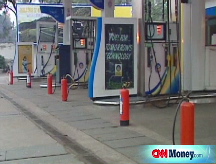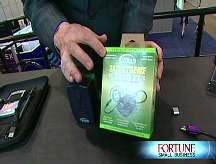Russia to turn gas back on
After a dispute between Russia and Ukraine left much of Europe with reduced gas supplies, a deal appears to have been brokered between the countries.
MOSCOW (CNN) -- Russia said Monday it would restore gas supplies to Europe after Ukraine, which has been engaged in a dispute with Russia, dropped conditions that had angered Moscow.
Russia and Ukraine had earlier agreed to a deal brokered by the European Union to end a bitter, weeks-long standoff between the two countries. The dispute left countries from Turkey to the Baltics with reduced gas supplies during an unusually cold winter.
Russia said the deal was off over the weekend because Ukraine - the key transit country - had attached unacceptable terms to the agreement.
But Monday it appeared the deal was back on, and a delegation from Russia was heading to Brussels to sign the deal.
Moscow and Kiev have been at loggerheads over the price Ukraine pays for Russian gas, which it distributes to other countries across Europe via pipeline.
Russia demanded sharply higher prices as of the beginning of the year, which Ukraine refused to pay. Russia shut off Ukraine's gas supply as the dispute escalated, and then cut all gas supplies to Europe on Wednesday.
The Russian energy giant Gazprom and the Ukrainian company Naftogaz have been trading accusations about supply. The Russians have accused the Ukrainians of siphoning gas from the pipelines, while Ukraine says Russia has been pumping less than it should.
The dispute has affected the supply of natural gas as far west as Germany and France. About a quarter of Europe's natural gas supply comes from Gazprom.
Czech Prime Minister Mirek Topolanek, whose country holds the rotating presidency of the European Union, flew to Kiev last week to broker the deal. Both sides agreed to allow international observers to monitor gas flow through the pipelines to end the argument about who was responsible for dips in supply.
Even once the deal is signed, it could take from 10 to 30 hours for gas to start flowing again, CNN's Matthew Chance in Moscow says. ![]()



